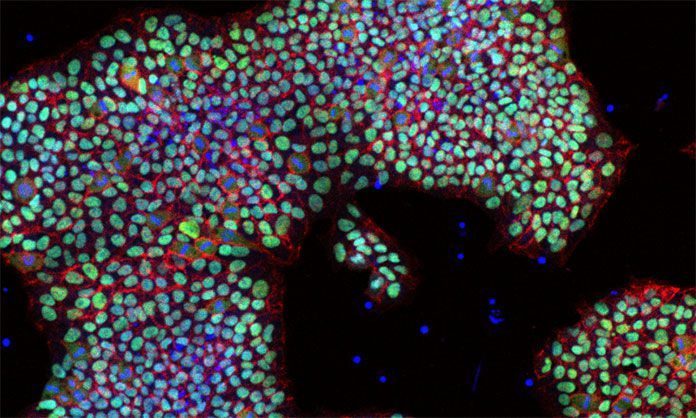Stem cells are undifferentiated biological cells that have the potential of distinguishing into specialized cells and dividing them for generating more stem cells. There is the very large demand of this cell with applications like disease modeling, drug screening, regenerative medicine and tissue engineering. Although, generating stem cell at large scale needs optimal application in modern healthcare. But this not possible now because current methods are either expensive or dependent on that substance which can be toxic for humans.
A new method of organizing human stem cell has been recently discovered by scientists from the University of Nottingham, Uppsala University and GE Healthcare in Sweden. This new method can overcome the biggest challenge of the large-scale production needed to get the potential of these remarkable cells for understanding and diagnosing disease.
Scientists have detected an enhanced method of creating stem cells. Due to this new method, production of stem cell can be done quicker and cheaper at industrial scale.
Dr. Sara Pijuan-Galitó, said, ” Team used a protein known as Inter-alpha inhibitor (gained from the human body) to generate human pluripotent stem cells in a minimal medium. They did not use any costly and time-consuming biological substrates. This protein makes stem cells attach on unmodified tissue culture plastic, and improve survival of the stem cells in harsh conditions.”
This new method is the first stem cell creation method that does not need any pre-treated biological substrate for attachment. Therefore, it is more cost and time-efficient and paves the way for easier and cheaper large-scale production.
Lead supervisor Dr. Cecilia Annerén, said, “As the coating is a time-consuming step and adds cost to human stem cell culture, this new method has the potential to save time and money in large-scale and high-throughput cultures, and be highly valuable for both basic research and commercial applications.”
Dr. Cathy Merry added, “We now intend to combine Inter-alpha inhibitor protein with our innovative hydrogel technology to improve on current methods to control cell differentiation and apply it to disease modeling. This will help research into many diseases but our focus is on understanding rare conditions like Multiple Osteochondroma (an inherited disease associated with painful lumps developing on bones) at the cellular level. Our aim is to replicate the 3-dimensional environment that cells experience in the body so that our lab-bench biology is more accurate in modeling diseases.”
Now the team is planning to further improve on current human stem cell creation. They are developing an economical and safe method that can be easily translated to large-scale production and can deliver the billions of cells necessary to start taking cellular therapeutics to the individual patients.
